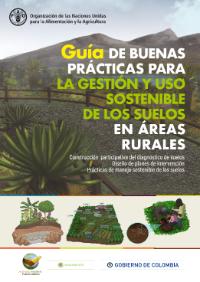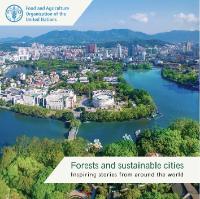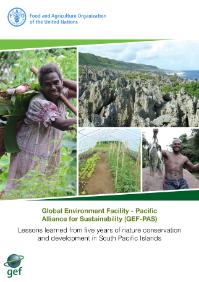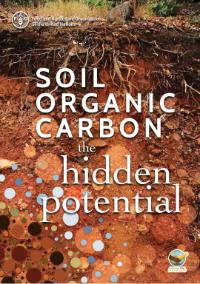Esta guía fue realizada por solicitud del Ministerio de Ambiente y Desarrollo Sostenible de Colombia, en respuesta a los crecientes problemas de degradación del suelo. Su objetivo es proporcionar buenas prácticas para la conservación, el uso sostenible y la protección de los suelos en las zonas…
This publication reports the proceedings of the twenty-sixth session of the Asia-Pacific Forestry Commission (APFC) held in Colombo, Sri Lanka, from 23 to 27 October 2017. The main themes considered were: Forestry in a new landscape; Guidelines for using forest concessions to manage public…
Recognizing the importance of the services provided by forests and trees to urban dwellers, the Collaborative Partnership on Forests proposed that the theme for the 2018 International Day of Forests would be “Forests and Sustainable Cities”. To mark this occasion and promote the widespread…
The Food and Agriculture Organization of the United Nations (FAO) with financing from the Global Environment Facility (GEF) under the Pacific Alliance for Sustainability implemented the project “Forestry Conservation and Protected Area Management” in cooperation with the Governments of the…
The publication was launched at the Global Symposium on Soil Organic Carbon (GSOC) held at FAO headquarters (Rome, 21-23 March 2017). It provides an overview to decision-makers and practitioners of the main scientific facts and information regarding the current knowledge and knowledge gaps on…
Preventing sprawl and concentrating future urban growth at transit centres typifies many urban planning strategies in a number of Australian New Zealand and North America cities Newer iterations of these strategies also argue that compact development delivers public benefits by enhancing urban…
This assessment focuses on three main services that plant protection impacts on soil can significantly affect: provisioning services for food, fibre, and fuel supply and regulating services for water quality and erosion. The Global Soil Partnership (GSP) at its 2016 plenary session requested…
Problems in agriculture and land use are increasingly recognised as complex, uncertain, operating at multiple levels (field to global value chains) and involving social, economic, institutional, and technological change. This has implications for how projects navigate complexity to achieve…
The purpose of this Act, consisting of 90 sections, divided into two Parts and completed by three Schedules, is: to record in English and te reo Māori the acknowledgements and apology given by the Crown to Ngatikahu ki Whangaroa in the deed of settlement; and to give effect to certain provisions…
The purpose of this Act, consisting of 126 sections, divided into three Parts and completed by four Schedules, is: to record in te reo Māori and English the acknowledgements and apology given by the Crown to Rangitāne o Wairarapa and Rangitāne o Tamaki nui-ā-Rua in the deed of settlement; and to…
The purpose of this Act, consisting of 115 sections, divided into three Parts and completed by four Schedules, is: to record the acknowledgements and apology given by the Crown to Ngāti Pūkenga in the deed of settlement; and to give effect to certain provisions of the deed of settlement that…
This Act, consisting of 250 sections divided into five Parts and one Schedule, establishes Land title and registration requirements. The purpose of this Act is to replace the Land Transfer Act 1952 with a modern Act that: continues and maintains the Torrens system of land title in New Zealand;…









